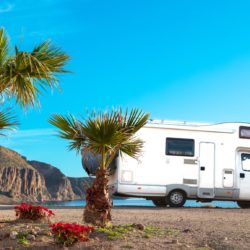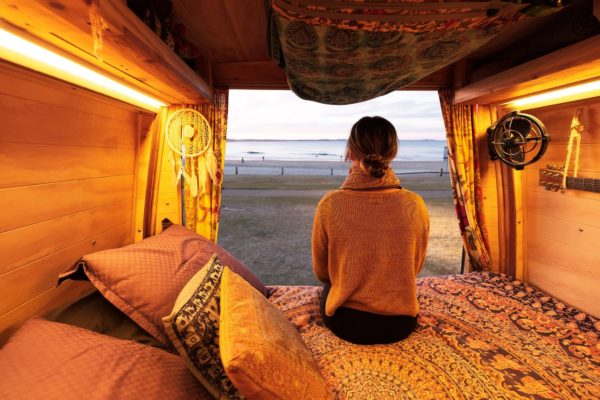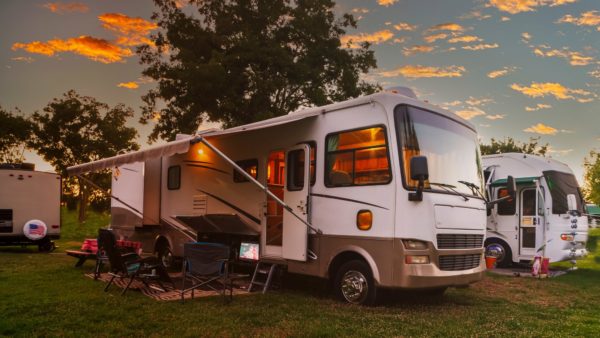New Zealand or NZ (in Māori, Aotearoa) is one of the best countries on Earth. It’s known for its breathtaking mountain ranges, refreshing lakes, adrenaline-pumping hiking trails, and dynamic Māori culture. This makes it a perfect road-tripping destination.
When it comes to road-tripping, nothing’s better than a campervan. Campervanning is one of the best ways to explore the magnificent beauty and exhilarating outdoor activities of the land of the long white clouds—this is what Aotearoa means.
Although you can ride a train, bus, or cab to find your way around NZ, there’s nothing better than having a vehicle that allows you to visit any place you want anytime, anywhere. This is especially true for locations public modes of transportation can’t reach.
If you’re planning to go on a campervan road trip, you’ve probably heard local travelers talking about ‘freedom camping.’ So, what’s freedom camping, and how is it different from typical camping? Also, does it mean you can camp freely without any restrictions?
In this feature, you’ll learn everything you need to experience the best of New Zealand, from hiring the right campervans to understanding freedom camping.
Why Should You Hire A Campervan In New Zealand
Campervans for hire are ideal for both long- and short-term travelers. If you’re planning to travel around New Zealand for a few weeks or months, renting would be better than buying.
When you hire a campervan, you don’t need to waste too much of your precious time searching for a vehicle worth your money—of course, it’s not like it’s cheap anyway. There’s no need to worry about selling it after the trip.
Furthermore, you may consider booking in advance to ensure you have a campervan when you reach New Zealand, especially during peak seasons.
Editor’s Tip: make friends by staying at a cool hostel in New Zealand!
How Much Is Hiring A Campervan In New Zealand
New Zealand has a high cost of living, so expect everything you see to be expensive, including campervan rentals.
Usually, the cost of a campervan for hire is around USD$40 to USD$250 (NZD$65 to NZD$400) each day. And it already consists of everything a camper often needs, such as a built-in toilet (self-contained), stove, cabinets, drawers, and a small bed.
How To Hire A Campervan In New Zealand
Here are some tips to keep in mind when you book a campervan in New Zealand:
#1 – Prepare The Requirements
First, you’ll need a valid driver’s license to drive a campervan in New Zealand. If your driver’s license is in English, you’ll be allowed to rent and drive a campervan, provided your license isn’t expired in your home country.
Campervan rental companies also accept non-English driver’s licenses, which must be translated into English. Once translated, you must bring the original non-English and translated licenses when you pick up your campervan.
The translation shall be done by an authorized NZ transport agency translator or the organization that provides your license. Some rental companies offer translation services for an extra fee of around USD$45 (NZD$70); nevertheless, this must be prepared in advance.
#2 – Check Your Age
Age is another important requirement in hiring a campervan in New Zealand. You must be 18 years old to rent and drive a campervan in NZ. This age limit only applies to smaller and more basic vehicles. If you wish to drive a larger one for the entire family, you must be 21 years old.
In addition, drivers below 25 years old might be required to pay additional charges because they’re considered high-risk drivers. For more information, call your chosen campervan provider directly.
#3 – Choose A Campervan
When choosing a campervan before having fun during your trip, kindly consider the following factors to find the right one for your road trip:
- Number Of Companions: Smaller campervans allow two to three people to sit and sleep comfortably. Larger campervans allow a family of four to five to live comfortably inside the vehicle.
- Vehicle Size: If you’ve chosen a campervan that fits the entire gang, check if it’s something you can drive easily. Are you comfortable driving a large vehicle? If not, you might want to choose a smaller one with enough space for the family. Also, you might need to sacrifice other inclusions to reduce vehicle size, such as ovens.
- Self-Contained: Self-contained campervans have built-in toilets. This allows you to set up a camp wherever you want, even if running water isn’t available. Yet make sure to dispose of your waste responsibly.
And don’t forget the inclusions when choosing a campervan. Does your campervan have a global positioning system or GPS? How about a driver or travel insurance?
#4 – Be Careful Of The Extra Campervan Costs
Although they’re not hidden, most people don’t know that extra campervan costs exist. And it can be a real headache if you fail to include them in your budget. These include:
- Location Fees (Pick-Up And Drop-Off): When renting a campervan, you must choose a pick-up and drop-off location. If your drop-off is in another city, campervan rental companies might charge you an extra fee of up to USD$300 or NZD$470.
- Fuel Tax: You can pay this upfront if it’s included or after your trip depending on how many kilometers your campervan ran. It may cost you around USD$5 to USD$7 (NZD$7 to NZD$10) for every 100 kilometers.
- Gas Bottle Refill: You’ll probably use a gas bottle when driving a campervan. If you do, ensure the bottle’s full when you return it after the trip. The cost may vary depending on how much fuel you use during the trip.
- Cleaning Fees: This depends on how you return your campervan. If you return the vehicle in a messy condition, the rental company might require you to pay additional cleaning fees.
- Pre-Rental Inspection: When picking up a campervan, note all the damage you noticed and inform the rental company about it—take pictures when necessary. Make sure to do this to prevent paying charges for damages you didn’t cause.
- Toll Fees: New Zealand has few toll roads; luckily, they’re not as expensive as you think. It only costs around USD$2 or NZD$2.
Other costs, such as tables and chairs, fans, heaters, towels, pots and pans, and fridges, may apply too.
Not sure where to start when you arrive? Our article on things to do in New Zealand can help you schedule your days!
What Is Freedom Camping
Once you’ve booked a campervan for your great NZ road trip, it’s time to plan your freedom camping. But first, what is freedom camping?
Freedom camping is a policy in New Zealand that lets you camp wherever you want. You can do this with a tent, motorhome, or campervan (of course, this one’s the best) in a public area with little to no facilities, such as toilets.
Most freedom camping sites only allow certified self-contained campervans to set up a camp, especially in public locations. This is to ensure responsible waste management to conserve and preserve the natural beauty of New Zealand.
Is Freedom Camping Still Allowed In New Zealand
New Zealand has passed a law called the Freedom Camping Act of 2011, which allows local authorities to apprehend irresponsible freedom campers, enforce bans, and prohibit freedom camping areas.
Under the law, you’re liable for a fine of USD$310 (NZD$200) up to USD$6,500 (NZD$10,000) if you:
- Set up a camp in areas where freedom camping is strictly prohibited;
- Breach any rules and regulations imposed within the area;
- Damage the camping grounds;
- Dispose of your waste irresponsibly;
- Refuse to follow the orders of a local enforcement officer; and the like.
The main purpose of the law is to balance the right to set up a camp and the right of Mother Nature to be protected at all costs. Since New Zealand is known for its pristine environmental conditions, it’s in everyone’s interest to keep it that way.
Where Can You Freedom Camp In New Zealand
Once you fully understand your rights and the law, it’s time to look for a camping site that allows freedom camping. There’s a wide range of freedom camping sites in New Zealand, most of which can be found near the sea, by the lakes, within the mountains, and in nearby towns.
Just continue driving until you reach a public conservation land owned and managed by the Department of Conservation (DOC). But always be on the lookout for ‘No Freedom Camping’ signs on the road.
Nevertheless, it’s best to ask local officials whether public land is accessible for freedom camping because some prohibited sites don’t have signs that say so.
How To Become A Responsible Freedom Camper
Here are some tips that’ll help you become a responsible freedom campervans for hire:
- Be Self-Contained: Make sure your campervan is self-contained. Not only will this help you gain access to a freedom camping site, yet it’ll also help preserve the beauty of NZ’s nature.
- Understand Council Bylaws: Read and understand council bylaws on the DOC website to avoid certain penalties.
- Respect Time Limits: Some camping sites have an early check-out time in the morning—make sure not to overstay. Doing so gives you more time to explore the great outdoors during the day.
- Leave No Trace: Before leaving the camping grounds, gather all your trash and put them in an eco-friendly garbage bag. Then, dispose of your garbage in an appropriate waste dumping area. This will help reduce the impact of freedom camping on the environment.
Final Thoughts
Hiring a campervan and freedom camping is one of the best ways to explore and experience the breathtaking beauty of New Zealand. When hiring a campervan, prepare all the requirements, check your age, choose the appropriate campervan, and be aware of the extra costs.
Once you’ve found the right campervan, choose a site that permits freedom camping. Make sure to be a responsible camper by choosing a self-contained vehicle, understanding the laws, respecting time limits, and leaving no trace.



